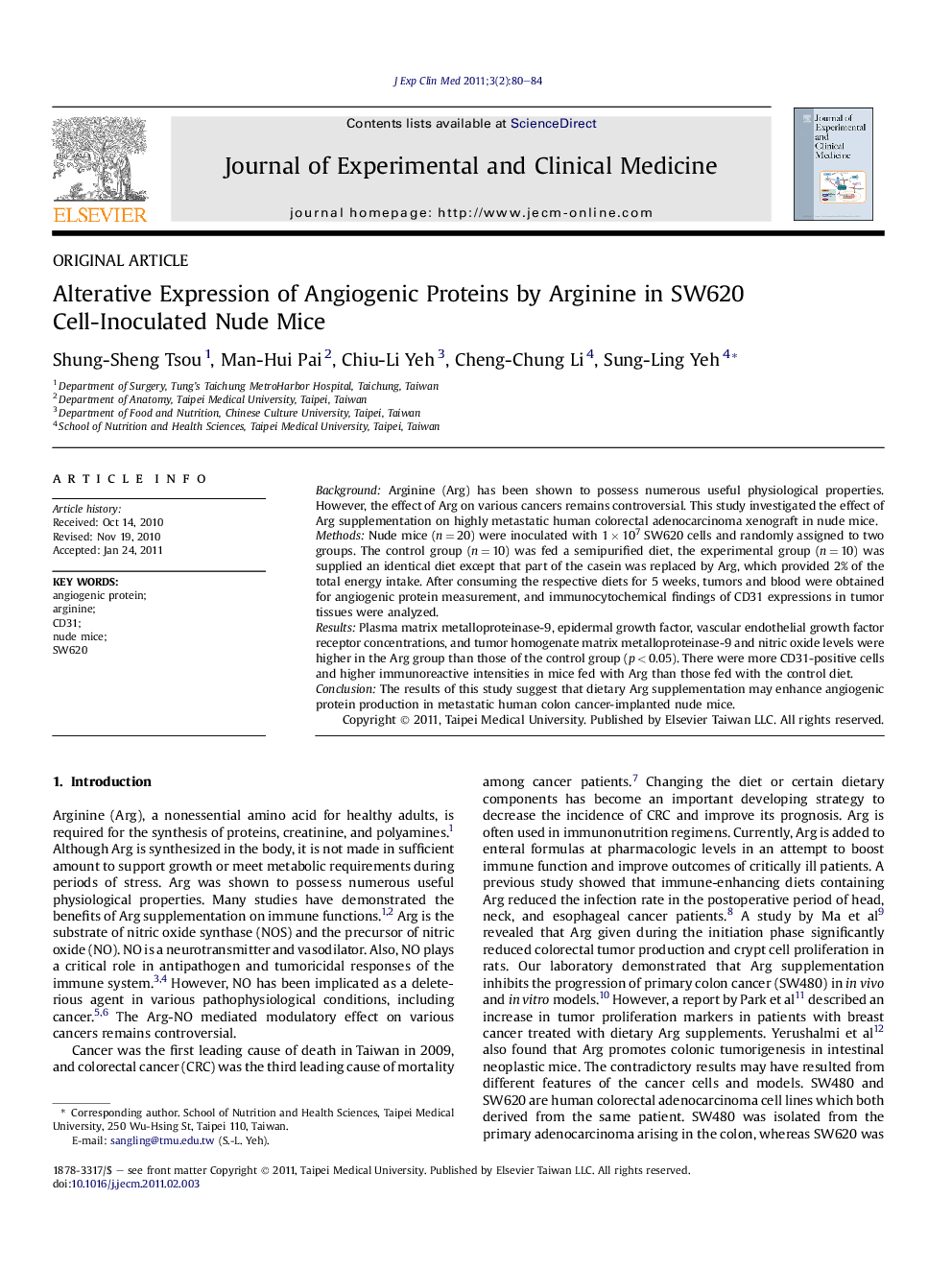| Article ID | Journal | Published Year | Pages | File Type |
|---|---|---|---|---|
| 3478087 | Journal of Experimental & Clinical Medicine | 2011 | 5 Pages |
BackgroundArginine (Arg) has been shown to possess numerous useful physiological properties. However, the effect of Arg on various cancers remains controversial. This study investigated the effect of Arg supplementation on highly metastatic human colorectal adenocarcinoma xenograft in nude mice.MethodsNude mice (n = 20) were inoculated with 1 × 107 SW620 cells and randomly assigned to two groups. The control group (n = 10) was fed a semipurified diet, the experimental group (n = 10) was supplied an identical diet except that part of the casein was replaced by Arg, which provided 2% of the total energy intake. After consuming the respective diets for 5 weeks, tumors and blood were obtained for angiogenic protein measurement, and immunocytochemical findings of CD31 expressions in tumor tissues were analyzed.ResultsPlasma matrix metalloproteinase-9, epidermal growth factor, vascular endothelial growth factor receptor concentrations, and tumor homogenate matrix metalloproteinase-9 and nitric oxide levels were higher in the Arg group than those of the control group (p < 0.05). There were more CD31-positive cells and higher immunoreactive intensities in mice fed with Arg than those fed with the control diet.ConclusionThe results of this study suggest that dietary Arg supplementation may enhance angiogenic protein production in metastatic human colon cancer-implanted nude mice.
